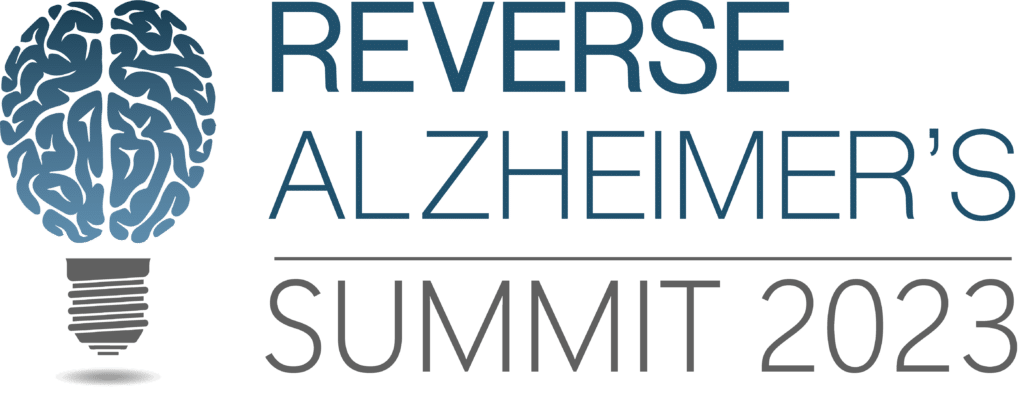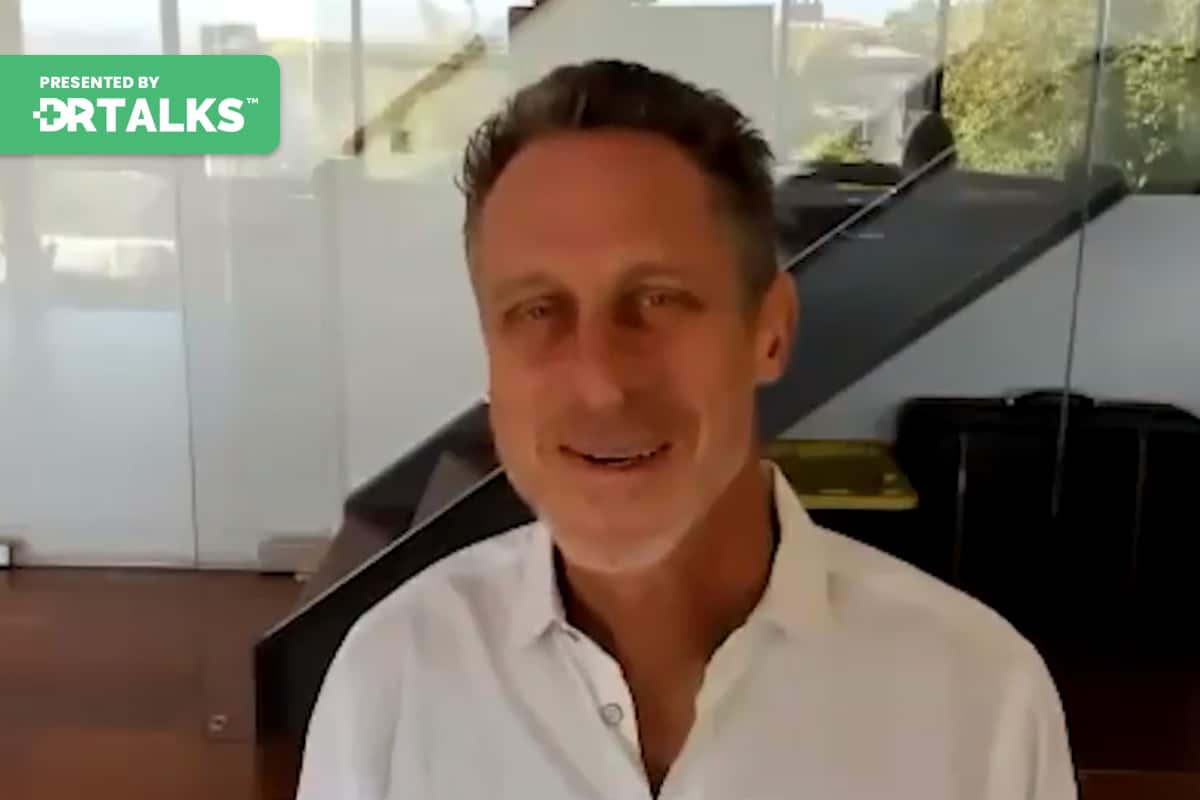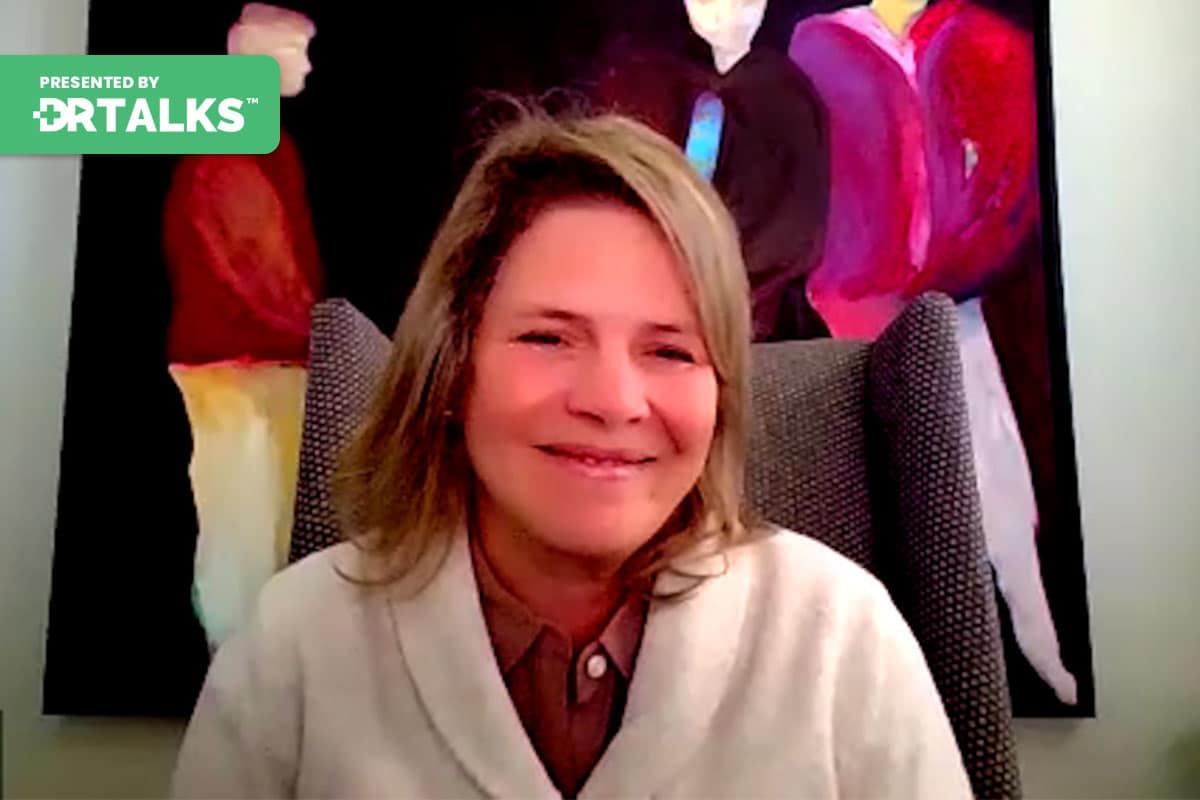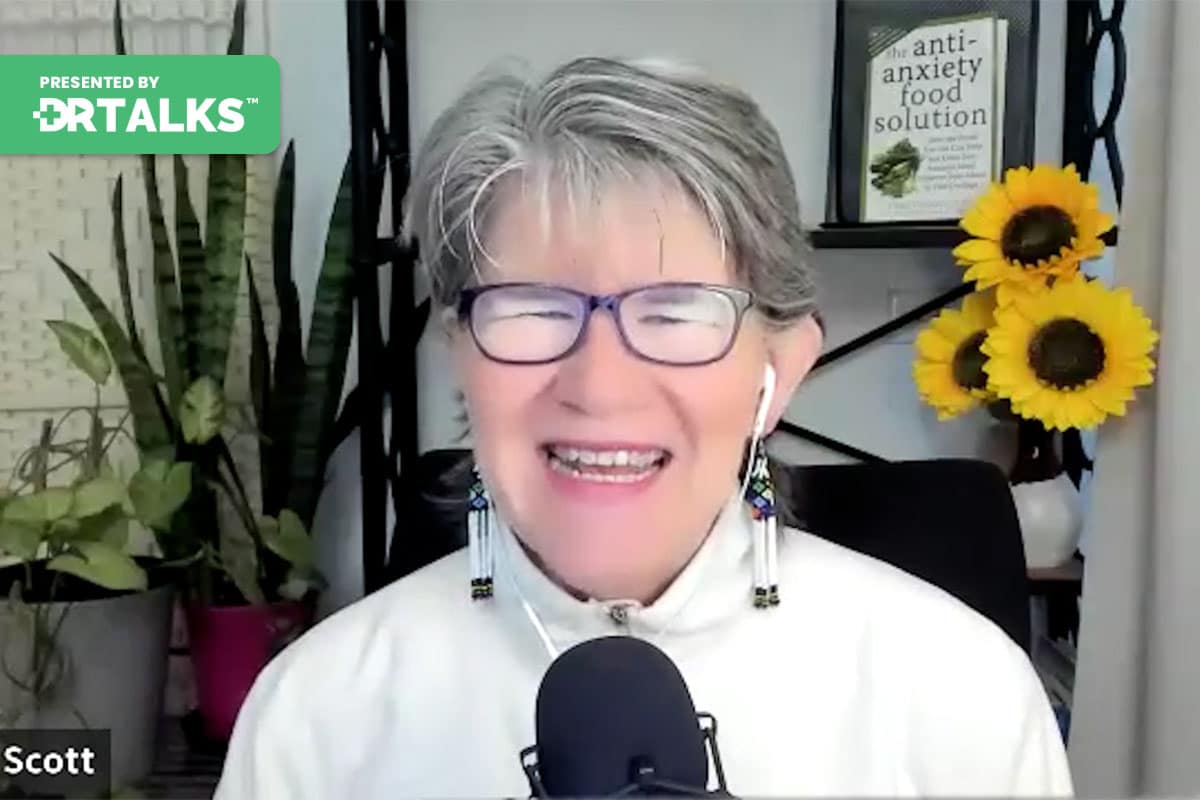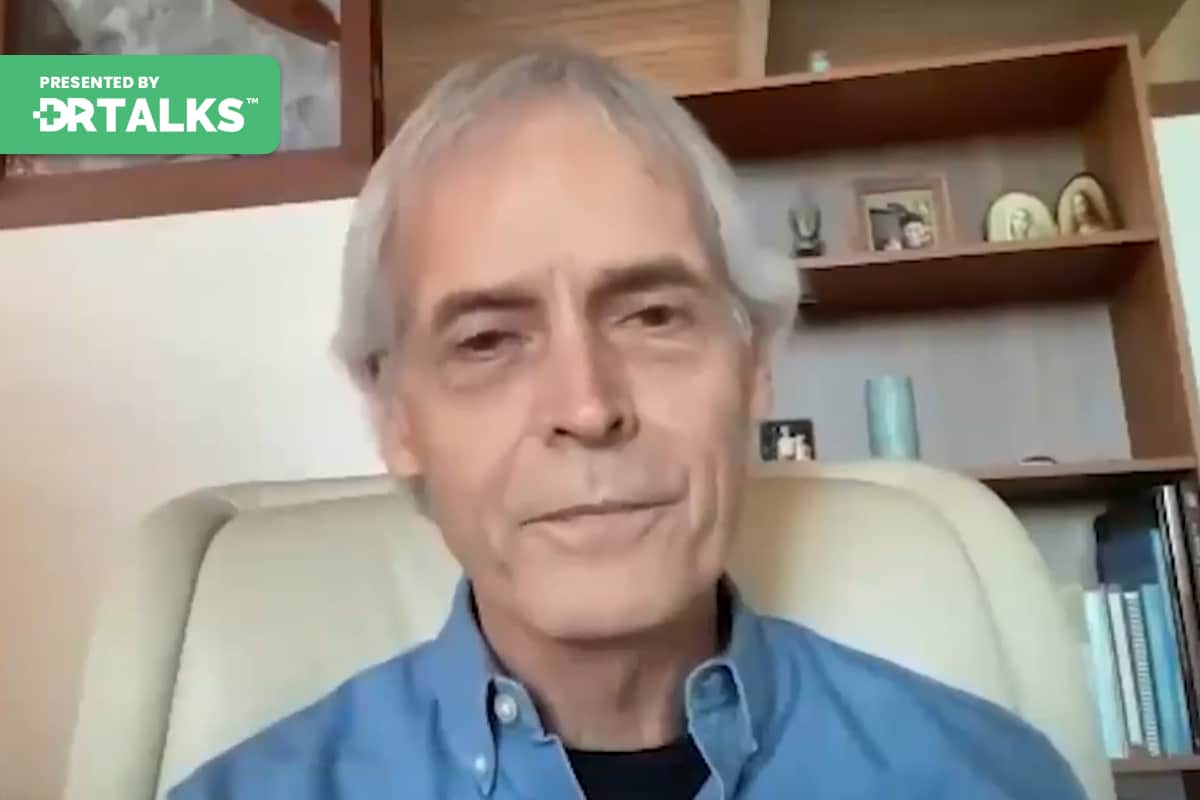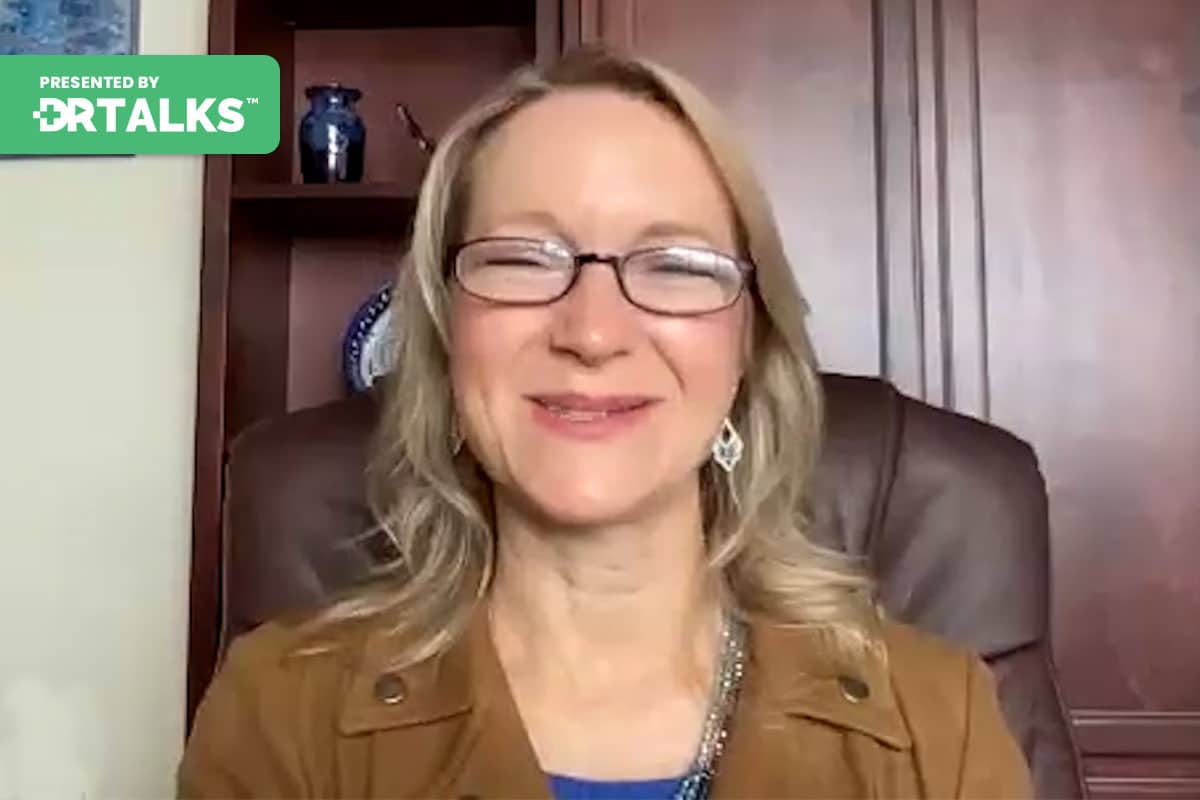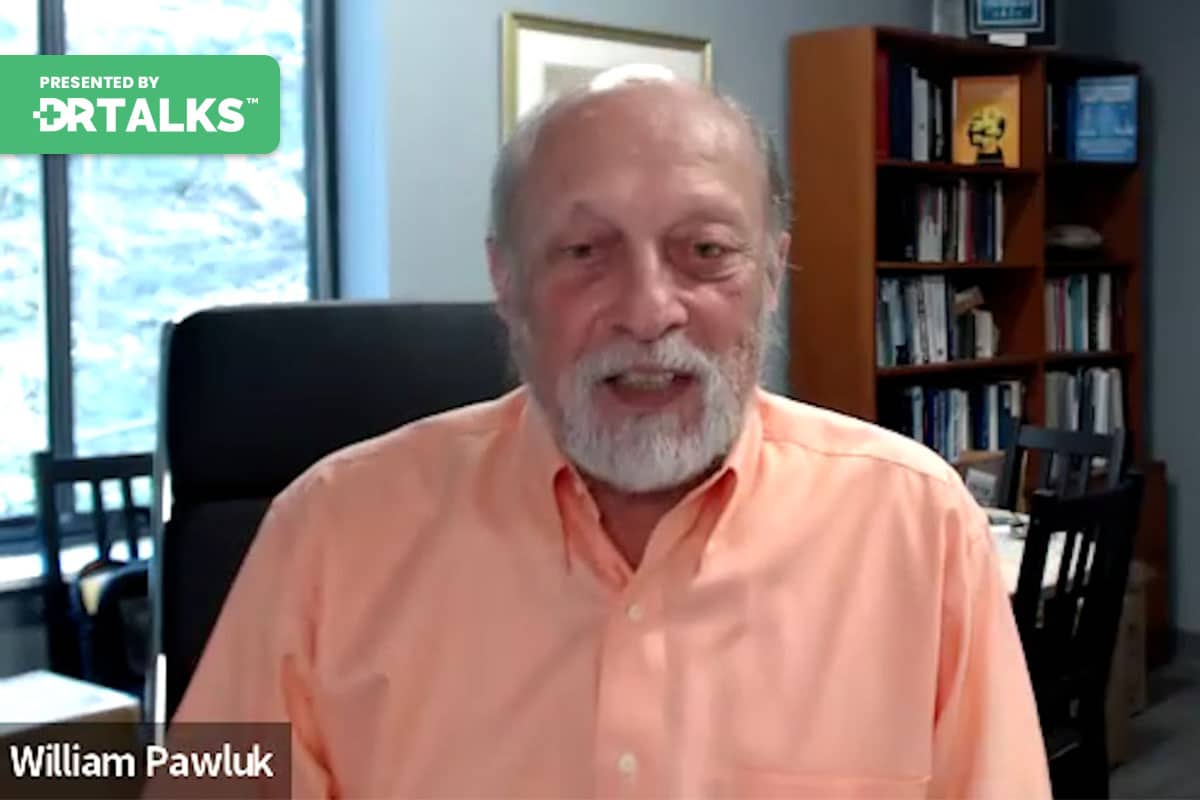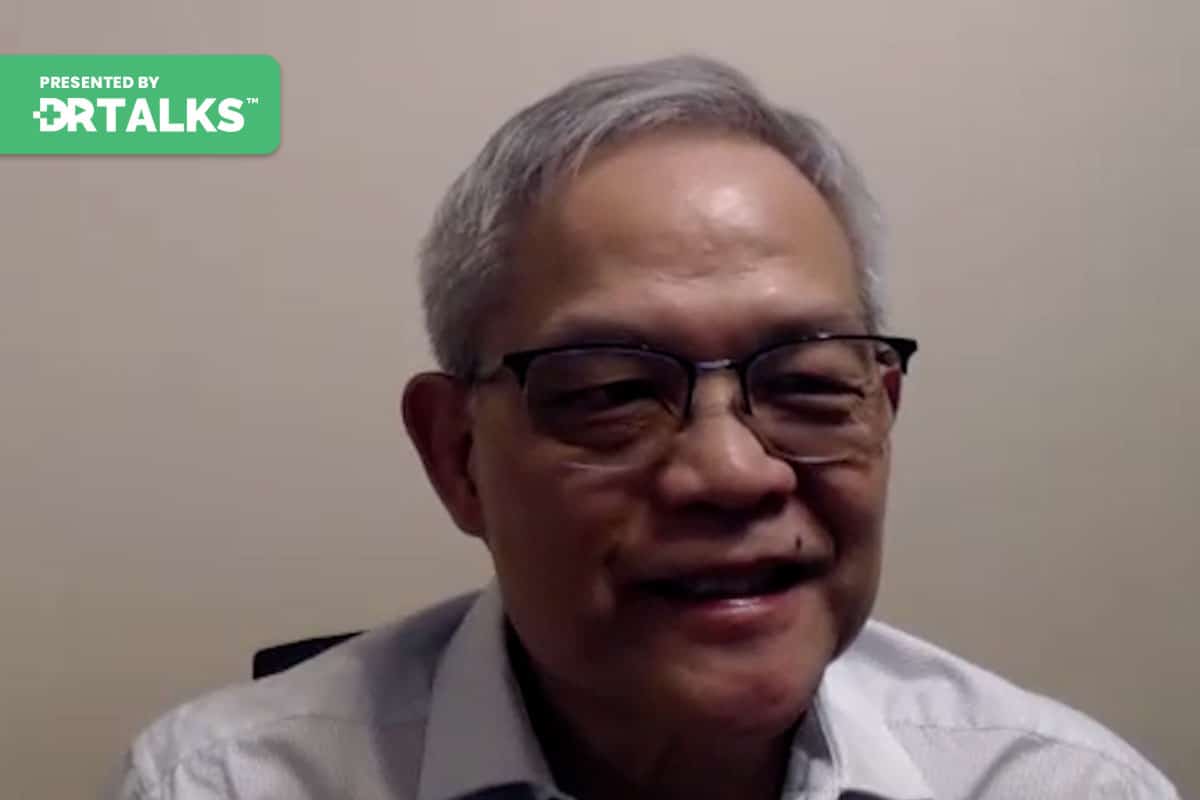Join the discussion below
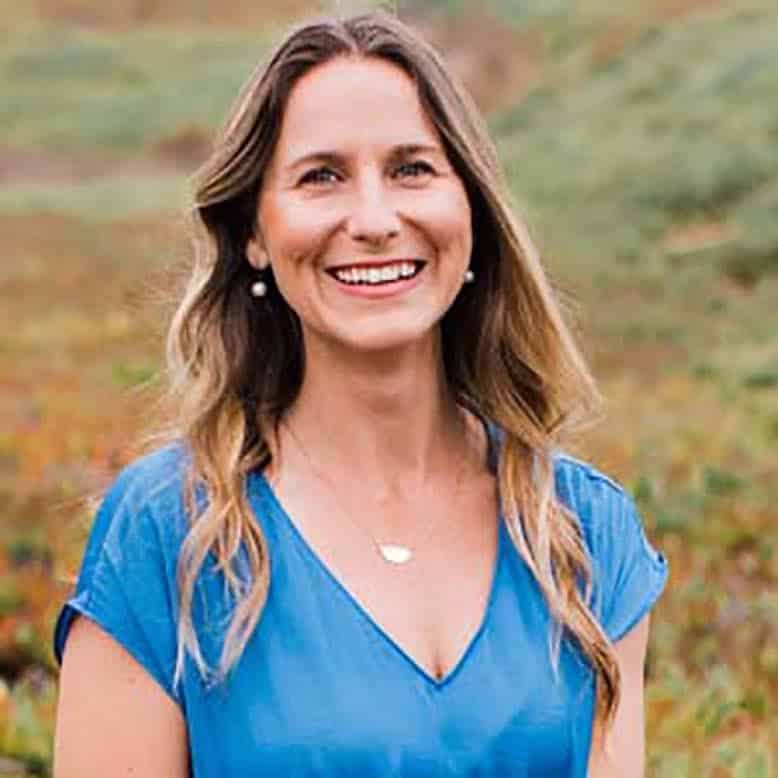
Dr. Heather Sandison is the founder of Solcere Health Clinic and Marama, the first residential care facility for the elderly of its kind. At Solcere, Dr. Sandison and her team of doctors and health coaches focus primarily on supporting patients looking to optimize cognitive function, prevent mental decline, and reverse... Read More
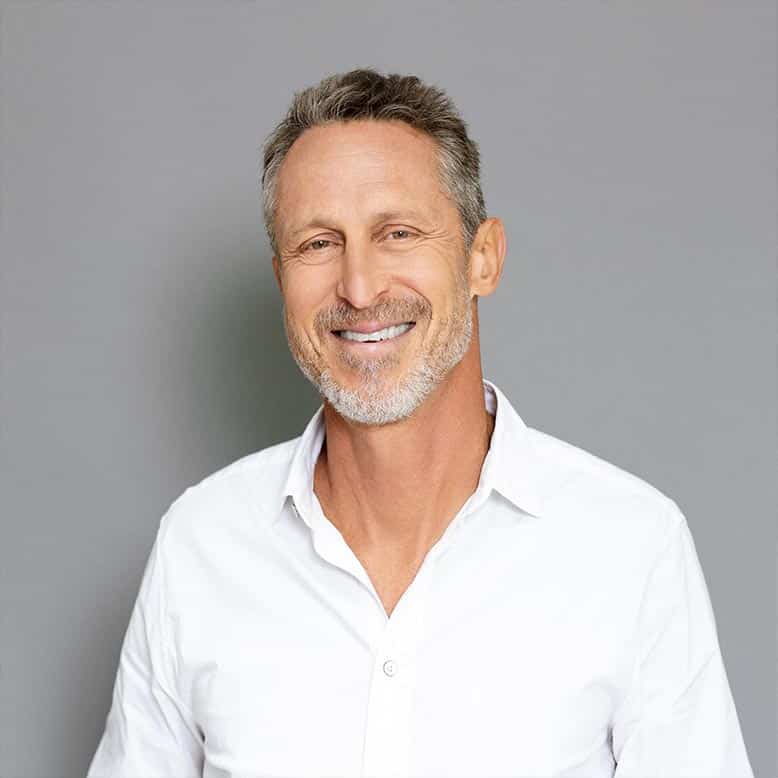
Mark Hyman, MD, has devoted his life to helping others discover optimal health and address the root causes of chronic disease through the power of Functional Medicine. Dr. Hyman is an internationally recognized leader, speaker, educator, and advocate in the fields of Functional Medicine and nutrition. He is the founder... Read More
Dr. Mark Hyman discusses the role and impact of the food system on brain health
- Discover the Pegan diet and how it transforms those who eat it
- Understand the role of diet in the reversal of cognitive decline
Related Topics
Alzheimers, Brain, Brain Health, Bredesen Protocol, Chronic Disease, Climate Change, Cognitive Function, Environmental Destruction, Fatty Liver, Food System, Global Food Shortages, Insulin Resistance, Liver Damage, Mental Health, Metabolic Health, Neurodegenerative Diseases, Nutrition, Nutrition Education, Oil Dependency, Pegan Diet, Refined Carbohydrates, Soil Health, Sugar, Sugar IndustryHeather Sandison, ND
Welcome back to this exciting episode of the Reverse Alzheimer’s Summit. I’m so thrilled and absolutely delighted to introduce you to Dr. Mark Hyman. He’s a leading health revolution expert. He has revolved his expertise around using food as medicine to support longevity, energy, mental clarity, happiness, and so much more. Dr. Hyman is a practicing family physician and an internationally recognized leader, speaker, educator, and advocate in the field of functional medicine. He’s the founder and director of the UltraWellness Center, the head of strategy and innovation of the Cleveland Clinic Center for Functional Medicine, and a 14-time “New York Times” bestselling author and board president for clinical affairs for the Institute for Functional Medicine. He’s also the host of one of the leading health podcasts, “The Doctor’s Farmacy.” Dr. Hyman is a regular medical contributor on several television shows and networks, including “CBS This Morning,” “Today,” “Good Morning America,” “The View” and CNN. He’s also an advisor and guest co-host on “The Dr. Oz Show.” Dr. Hyman, thank you so much for joining us.
Mark Hyman, MD
You’re welcome. Thanks for having me.
Heather Sandison, ND
You have taken on a lot in your career. And one of the things that I’m most excited to chat about is this big idea that it is the food system that we need to fix in order to address the root cause of our health as a society. So this is a massive problem and a massive undertaking, and yet you’ve taken it on. Can you tell me a little bit about that experience?
Mark Hyman, MD
Maybe I feel like Don Quixote yelling at windmills, but I think it needs to be done because our food system from end to end is both the cause and the cure for most of the problems that we are facing today in the world. And I just want to sort of list them and how I came to understand this. But really it first started with me sitting in my office with patients realizing that I could not cure diabetes in my office, that it was cured on the farm, it was cured in the grocery store, it was cured in restaurants, it was cured in the kitchen and the workplace. And I could not fix my patients if I didn’t deal with the upstream causes. And I began to think about, “Well, what’s causing the food system that we have?” and it really was our food policies and then being “Look, what causes our food policies?” Well, it is the food companies and the food industry that’s driving so many of those policies through massive amounts of lobbying. And then I began to realize that the other side was not being heard and I started a nonprofit 501c3501(c)(3), The Food Fix Campaign and an advocacy group of 501(c)(4) lobby groups to try to change that. And for example, this morning, I was on a call with my lobby team in Washington, because we are trying to push for medical schools to build into the curriculum nutrition education and chronic disease. It’s the single biggest cause of chronic disease and the single biggest cure and yet doctors know nothing about it. My daughter’s in medical school right now, and she’s like, “Dad, we do not get any nutrition education.” And so we are trying, for example, to figure out how to mandate on the licensing exams nutrition and chronic disease questions, which will force the curriculums to shift in both undergraduate and postgraduate medical education.
That is just sort of one example. So I began to sort of look at the problem as a whole and realized that how we grow food drives the food that’s consumed and the food that’s consumed is driving the diseases that we see and the cost is associated. So now we have six out of 10 Americans with a chronic disease. We have 88% of Americans with some form of prediabetes. That is just a mind-boggling number. Almost nine out of 10 Americans have metabolic poor health. That economic burden is staggering. One out of $5 in our economy is spent on healthcare and probably 80 to 90% is on chronic diseases that are caused by food. And then you have that economic burden on society and governments and in America, for example, on corporations.
I think Warren Buffett said that healthcare is the sort of parasite of business because of the cost of healthcare. And then we have other downstream consequences that have to do with health inequities, social justice issues, the effect on kids and learning, and mental health. I just spoke to a friend of mine who’s the psychiatrist at McLean Harvard who just wrote a new book about the brain called “Brain Energy,” which is coming out in the fall, where he discovered that by changing the diet in one of his schizophrenic patients to help him lose weight using a ketogenic diet, his schizophrenia went away, and it just kind of lit the light bulb for him that wait a minute, the brain and food are connected and we may need to sort of rethink the whole paradigm of mental health and even neurodegenerative diseases, which I know we are really focused on with reversing Alzheimer’s.
Heather Sandison, ND
Yeah-
Mark Hyman, MD
And then-
Heather Sandison, ND
Go ahead.
Mark Hyman, MD
And just a couple of other points, and then in terms of some of our big issues around climate and the environment, we see the food system not really as a big part of that, but in fact, it is probably the single biggest cause of climate change. Environmental destruction through agriculture because of the way we grow food is destroying the soil. The soil is a carbon sink. In fact, a third of all the carbon in the atmosphere comes from the soil being degraded over the last 150 years through tillage and chemical use that destroys the living matter in the soil. And we really look end to end at the food system from food waste to deforestation, to the inputs from oil.
And we are really facing the challenge of this right now because we have a oil-dependent food system that now is being challenged because of the rising oil prices because of the war in Ukraine, and we are seeing global food shortages, we are seeing developing countries swapping oil for the food because as the price of oil goes up, the price of commodities goes up like corn and soy and meat, right? So they are all dependent on oil inputs. And so you’re now seeing 20+ million people in Africa being at risk for starvation. So these are all interconnected problems and we have to think of them as one whole problem.
Heather Sandison, ND
When we think about Alzheimer’s it is similar in that it is a complex problem without a solution that matches the complexity of the problem. And as I hear you talk about the food system, it is this very interconnected, very complex problem that requires a complex solution. And so as we sort of dive into how this affects the brain, again, the interconnectedness, we made the wisdom of our elders at the height of their wisdom and experience. If they do not have the cognitive function to contribute that intergenerational wisdom, then we will not find solutions to the world’s biggest problems. Having these conversations and starting to think about how we can harness and protect that cognitive function is essential.
And we clearly are on the same page. So let’s talk about some tangible things that people can do, the decisions that they can make at home that have that ripple effect, not only the effect on them personally in terms of better cognitive function, less diabetes, better mental health, more energy, better sleep, the list. I love it ’cause the side effects of a Bredesen protocol or the pegan diet or Dr. Perlmutter’s approach. All of our colleagues in this space have the side effect that everything gets better. Everybody works better.
Mark Hyman, MD
True, true. Yeah.
Heather Sandison, ND
And the ripple effects are that we are making better decisions for the planet, better decisions for society. So tell me, what would you say if somebody could make one decision today that would change their health, what would it be?
Mark Hyman, MD
That is really easy. I think the challenge is, just kind of like a little side tangent before I answer that question, I just came back from Ikaria which is one of the Blue Zones and I sat with a woman who was 103-years-old and she was sharp as a tack. And another couple, the husband was 97, the woman was 87 and it was really astounding to see the level of health they had, the level of cognitive function they had. And in looking at their diet, it was just so clear that their natural way of moving and living and being through their social connections to there, having to move in terms of their sort of structural lives of shepherding and gardening and doing the basic tasks, kept them active. But the food was really amazing. For example, they drank this wild sage tea every day that is super high in something called epigallocatechin, which we see in green tea, but they have profound effects on our health, on activating longevity switches, anti-inflammatory switches, antioxidant switches, detoxification switches in the body. And so if there was a single thing I would recommend, it would be to really dramatically reduce or even eliminate for the most part, refined sugar and refined carbohydrates.
Those are the things that are driving so much of the problem. And I mentioned earlier that eight out of 10, sorry, almost nine out of 10 Americans have poor metabolic health, which means they have high blood sugar, high blood pressure, and high cholesterol, which are by the way, all caused by starch and sugar. So we consume about 152 pounds of sugar and about 133 pounds of flour per person per year in America. And those are poisons. Those are literally poisons. And we think of alcohol as a poison, but in the same way, the biggest cause, for example, of liver damage in America is sugar and starch. Fatty liver affects 90 million Americans and it drives all the chronic diseases. We now talk about Alzheimer’s as type three diabetes because of its insulin resistance in the brain. So this is the single thing I would do is eliminate liquid sugar calories. And yes, you can have sweets from time to time, but it should not be a staple in your diet and flour should not be a staple in your diet and sugar should not be a staple in your diet. It’s a treat. I think of them as recreational drugs. Occasionally I have a glass of tequila, but I do not do it every day and I do not have it for breakfast, lunch, and dinner.
Heather Sandison, ND
I think it really helps people to understand a little bit of the historical and political context around the sugar industry and how they influenced this narrative that fat was bad, but sugar was an okay replacement.
Mark Hyman, MD
Yes, that’s a rabbit hole. I wrote a whole book about this called “Eat Fat, Get Thin.” And I talked about the history of the belief that it was fat, not sugar that caused the problem. And it is a long story if you’re interested in reading that book. But the basic short story is that we thought high cholesterol was the problem, we thought cholesterol was caused by eating too much fat and that that was the problem. If we cut fat, we cut cholesterol, we’d cut heart disease. Just didn’t turn out to be so simple. In fact, the thing that causes your liver to manufacture cholesterol is starch and sugar. That is what causes high triglycerides, low HDL, small LDL particles, and mini LDL particles. Those are what we call atherogenic dyslipidemia. In other words, the kind of cholesterol that causes heart disease and hardening of the arteries, which happens in your heart, but also in your brain. And a lot of dementia is actually hardening the arteries in the brain, which is caused by the same mechanisms. And so we kind of got sidetracked and the government kind of bought that line in the McGovern Report in the 1970s, tried to make an advance on dealing with nutrition and disease, but they were influenced highly by experts at the time who were pushing the notion that fat was the problem. We were told to eat less fat and eat more carbohydrates. And the food pyramid said to eat six to 11 servings of bread, rice or pasta, and fat sparingly, which was sort of the upside down on what we should be doing. And now you see, for example, the groups like Virta Health, which is outside healthcare using ketogenic diets to reverse diabetes, 60% of diabetes gets reversed in advanced diabetics. And I have seen this over and over in my practice.
And we see them actually using 70% of their diet as fat and this is not necessarily good for everybody, but for those with really poor metabolic health using a higher fat, low carbohydrate diet can be very effective. And this is really not my idea. I’m a practicing doctor. I’m not a research scientist, but my colleagues like David Ludwig at Harvard have done really hard work, and have published really profound research, looking at how, for example, by taking identical calorie diets, but swapping out the fat and carbohydrates, those who eat the high fat, low carbohydrate diets, have a higher metabolism, burn 400 calories more a day, lose more weight. So it is not about calories in, calories out. It’s about the information in food. And that’s really the foundation of functional medicine is understanding that food is information, not just calories.
Its instructions are code and it regulates every single function of your biology from your immune system to your microbiome, to your hormones, to your detoxification system, to your mitochondrial function, to your, what you’re made out of, your structural system. So all of it is really connected to food and it is the most powerful lever we have to change. And we really got it pretty wrong. And when you look at the historical shift in obesity, and I think the government, it just caught us by surprise. And even doctors are kind of still not very aware of this because in the last 30 years, it is been like a hockey stick of obesity and diabetes and people are just like, “Wait, what happened?” And it is really because of this push towards a high carbohydrate, low-fat diet that really drove so much of this problem.
Heather Sandison, ND
And I want to just echo that. Over and over again what I see personally in my clinical practice is people reversing their cognitive decline, reversing diagnosed Alzheimer’s when they get on a ketogenic diet. And one of the things that comes up is this idea that a ketogenic diet can, is it just bacon and eggs and cheese?
Mark Hyman, MD
No, God, no.
Heather Sandison, ND
Tell us, the pegan, I’m saying pegan, am I saying that right?
Mark Hyman, MD
Yes. Pegan, yes.
Heather Sandison, ND
Pegan diet. All right. So you are proponent of the pegan diet and I’m so curious how you describe it ’cause I know there’s a lot of overlap with the ketogenic diet, but a big emphasis on veggies.
Mark Hyman, MD
Well the whole idea is that it is focused on a few key principles. One is quality. So what is the quality of the information you’re putting in your body? Is it food or is it not food? Most of the stuff we eat is not food. It’s highly processed ingredients that are pretty far from what they looked like when they came off a farm. And the second key principle is food as medicine. So understand that that is literally, coded instructions, it is programming your biology with every bite. And the third is personalization. So not everybody needs a ketogenic diet, but the pegan diet was sort of a joke basically, that I came up with on stage. One doctor was focusing on paleo, one was a vegan cardiologist and they were fighting and it was getting kind of heavy and I’m like, “Hey, if you’re a paleo and you’re a vegan, I must be pegan.” And I sort of made a joke and it stuck and people laughed and I thought, “Okay,” and then I wrote an article about it, but essentially it is really focusing on those three key principles.
And depending on where you are in the spectrum of your health, you may need more aggressive treatment. Like Benjamin Franklin said, “An ounce of prevention is worth a pound of cure.” And sometimes people need a pound of cure. And in certain cases like types of diabetes, Alzheimer’s, autism, schizophrenia, and epilepsy and various kinds of neurologic diseases, we see profound effects of ketogenic diets. And I think I just, I do not know if I mentioned earlier, but this psychiatrist at Harvard put this patient on a ketogenic diet with schizophrenia and cured his schizophrenia because he just changed the metabolic health of his brain.
So the brain, you know it is interesting, psychiatrists pay little attention to the brain and neurologists pay little attention to the mind. We kinda have to understand that the brain is part of our biology, not like we learned in medical school, but it is this sort of disembodied thing that sits on top of our neck and is disconnected from the rest of our biology by this thing called the blood-brain barrier, which is not really what we now know. It’s very dynamic and everything happens in our brain that happens in our body. We really have enormous power to pull these levers that traditional medicine is not pulling, unfortunately. It just breaks my heart because I see so many people suffering that do not need to suffer. And that does not mean to say we can cure all Alzheimer’s and we can cure all diseases, but we just have a much better understanding of biology now. It’s just not getting into medical practice.
Heather Sandison, ND
This is such an important point that there’s unnecessary suffering happening. And that’s what gets me out of bed every day to do the work is because we can see, we see it with our own eyes every day with our patients and I know your work is to spread that. How can we increase the impact? There is so much suffering that does not need to happen. And particularly with dementia, as we approach this demographic shift, we are going to have many more elderly folks than we have young people to care for them. We must find solutions. Prevention as you mentioned, is so much easier than treatment.
Our confidence goes up when we can intervene earlier. So when someone is younger, earlier in the disease process, and if they can all-in with exercise, diet, sleep, all of these foundational pieces that really are critical to health. So I’m so excited to be joining you in this crusade. Maybe shouting into the wind, but I know I have talked to patients who have come into my office with your book in hand saying, “I have got better. I have gotten better. Things are better. I have lost weight. I feel sharper. I feel better.” Or Dr. Bredesen’s book, “I’m getting better just from this book. Now, how can we get to the next layer?” So thank you for inspiring people to do that. Now, have you seen patients that have reversed dementia and cognitive decline? What are the-
Mark Hyman, MD
Sure.
Heather Sandison, ND
Awesome, I love it. So do you have any quick anecdotes to share about that?
Mark Hyman, MD
Of course, I’ll tell you a couple of quick stories. You know, one was an interesting woman, and this was an easy win, and it just shows the power of nutrition. She was about early 80s. She was a wealthy woman who was on the board of some major companies and running her company. Then was just told she had MCI or mild cognitive impairment and just to get her affairs in order and sorry. And I said, “Well, gee, let’s have a look and see what’s under the hood.” And turned out she had severe B12 deficiency, which is not uncommon in the elderly because of low stomach acid and diet, and various other things.
And she also had real problems with methylation, B vitamins which is a key part of your cognitive function. And so I just gave her B12 shots and I gave her some B vitamins that help with methylation like folate, B6 and she was like, boom, back to normal. And then about five years later, I got a call from her. And I was like, “Oh, maybe she’s declining. And I’m a little worried about her,” because you know, when you treat patients, they get better, you just do not see them anymore. And then she’s like, “Well, Dr. Hyman, I’m going trekking in Bhutan and I want to know what I should bring with me.” I’m like, “Okay.” I had another guy who was, again, another CEO of big company and running his family business and really was pretty far gone. And he was sitting in a room, really severely cognitively impaired, depressed. And his family, his grandkids didn’t want to be around him and he was not able to function, go to any social events, nothing. Could’ve been running his company. And I said, “Well, just let’s look under the hood.” And he had not one thing, and often it is not one thing, it is many things. In medicine, we are taught, “Oh, it is the one thing, it is this one pathway, this one drug will fix it.
I’m like, it is amyloid, it is this…” It just does not work like that. The body’s an ecosystem. So he had a whole series of things. He was very insulin resistant, he really was overweight, he had a big belly, like a big, little pot belly. So he was very insulin resistant. He had extremely high levels of homocysteine and had these methylation problems we were talking about. He also had the genes for this gene And he also had APOE double 4 so he was at high risk because of this genetic risk. And then he had really high levels of heavy metals because they live in Pittsburgh and almost all my patients from Pittsburgh are heavy metal toxic ’cause the U.S. Steel is there and they have used coal to run the steel plants and that coal goes in the atmosphere and it is everywhere. It’s on the soil, it is on the streets, it is everywhere. He had high levels and he had a whole mouthful of fillings.
So he had one of the highest levels of mercury I’d ever seen. We detoxed him for mercury, we got his fillings out, and we optimized his insulin, and his methylation. He also had terrible gut issues. Now we know the microbiome plays a huge role in cognitive function in the brain. We know it declines as we age, but also we know it plays a role in dementia because of the inflammation and the leaky gut. And we know that Alzheimer’s is a brain inflammation disease. So where’s it coming from? It could be the heavy metals, it could be the methylation issues, it could be the insulin resistance but also it was his gut. And he’d had an irritable bowel for years and was, I think it was on Stelazine or something for his gut, which is a psychotic drug to calm his gut down. We fixed his gut, we fixed his insulin, we fixed his methylation, we fixed his metals and he literally woke up like Rip Van Winkle.
It was really quite amazing. So I see case after case like this and it just gives me hope. Now there are some patients I really have struggled with who are like, “We tried things and it is maybe we haven’t figured out the whole puzzle pieces yet.” But I would say that eight out of 10, either get significantly better or dramatically better. And so whether it is mold or Lyme or insulin resistance or heavy metals or microbiome or often a whole collection of these things, you have to deal with all of them. It’s not like that one thing. And like they all talked about, if you have 36 holes in your roof, if you plug up five of them, it is still going to rain in your house. You gotta find all the holes and you gotta plug them all.
Heather Sandison, ND
Absolutely. It’s just so exciting. Absolutely there is hope for people right now, there are ways to prevent and reverse cognitive decline and yes, we always need to know more. We always want more research and more data, fair criticism. We did a clinical trial in my office and we are excited to share the results this year and publish those in a peer-reviewed journal Dr. Bredesen also, and his team did a trial and got similar numbers to what you’re describing about 80% percent of people getting better. So we know enough to act right now. We do not have to wait for more. And I love that a lot of this is just common sense. Just uncommon practice.
Mark Hyman, MD
Exactly. There is even major research trials. Like the FINGER trial was a trial that used lifestyle and dealing with all these different metabolic things and changing diet and lifestyle and saw not only a slowing, but a reversal of cognitive decline. And Richard Issacson’s work is really profound. And his was really extremely rigorous science around this and is coming to the same conclusions. So all of us who are trying these things are coming to the same conclusions and yes, there’s always more to uncover. And I talked to Richard about other layers of things like heavy metals or things he might not be looking at, but even this simple stuff of just fine-tuning each person’s unique biology, which is really what functional medicine’s about. It’s about understanding the imbalances in the body, correcting those imbalances by taking out the bad stuff and putting in the good stuff. The body can recover. It’s really remarkable.
Heather Sandison, ND
We are built to heal. We are designed to heal. So what’s next for you? You have taken on big projects. You’ve written many best selling books, you’ve been involved with Cleveland. Your resume, your CV is impressive.
Mark Hyman, MD
I know, I can’t believe I’m still standing. But anyway…
Heather Sandison, ND
So what’s next for you? How do we share this message more broadly so that it is more adopted by more people and there is less suffering? What’s next?
Mark Hyman, MD
For me, what’s next is I just finished writing a book called “Young Forever,” which is about taking the science of functional medicine and focusing on longevity and understanding how we activate all our innate healing systems, our longevity switches, and actually bringing that into sort of more of a common conversation about how people can do this on their own and also what’s coming in the next science. So it is exciting. We are now for the first time, what I talk about is we are understanding the mind of God. How were we designed? How is the human body designed? How do we work with it in a way to enhance its function and optimize its performance? So that’s kind of an exciting project. And the other thing I’m really working on a lot is the food system. And we touched on it earlier, but how do we change the food system? Because if we do not do that, we are kind of swimming upstream. And I think that’s really a key focus of mine is how do we change food policies, to change agriculture, to create a more regenerative agricultural system to create a regenerative healthcare system, we are working on things, as we talked about nutrition in medical schools, on medically tailored meals so Medicare will pay for food as medicine. Where we change and fund agriculture transformations through regenerative agriculture. And it is starting to happen. Through the work we have done, we have literally got billions of dollars allocated through the USDA for regenerative agriculture. Secretary Vilsack just announced the Food System Transformation Framework, which works on multiple levels to enhance the food as medicine framework and regenerative agriculture. We are now going to have a White House conference on nutrition and health, which hasn’t happened in 50 years. That is going to happen in September. So there’s a lot of really exciting things happening that are coming out of our work and other people’s work. It’s obviously not just us, but we are just trying to move this down the field collectively. And it is an exciting moment in history. I think we are like waking up to like, “Wait a minute, maybe there’s another way to do this.”
Heather Sandison, ND
Extremely exciting. So how can people help? I know our listeners are going to want to make different decisions after hearing this conversation. So is there something they can buy differently in the grocery store?
Mark Hyman, MD
Sure. I mean, I think all of us have the opportunity to vote with our dollars, with our forks, with our actual votes. I think people feel disenfranchised, disconnected, “What I do does not matter,” but it does. And it could be as simple as taking the initiative of composting or creating a garden. I mean, 40% of the food in America during World War II was grown in victory gardens. We called them victory gardens because we needed to put people to work in factories to make a bomber every 52 minutes, which we were great at doing. We can’t even, I do not know what’s going on with this country now, we can’t even make enough master people.
So it is like the potential for us as individuals to make the small changes that make a big difference collectively are huge. And when we vote with our dollars, companies change. I have a friend for example, who is on the sustainability board of Nestle and they are working with the CEO of Nestle, which is the biggest food company in the world, to help them. And they have committed to do by 2030, 70% of their supply chains into regenerative agriculture. That is huge, that’s huge because that’s going to drive the market, that’s going to drive agricultural change. And so I see these initiatives happening and it is really exciting to me.
Heather Sandison, ND
And then too, how can people get involved? Should they sign up for your newsletter? How can they find out more about you?
Mark Hyman, MD
Sure. I mean, if you can keep track of what we are doing on social media, it is just DrMarkHyman, D-R MarkHyman on Twitter and Facebook and Instagram and TikTok, I think even. And then of course they can go to my website, DrHyman.com. I have got a newsletter for recipes. I have got my podcast at “Doctor’s Farmacy” every week. We have got a couple episodes a week and that, and so there are ways for people to get connected. And also if you want to join the movement to help change the food system, politicians do not lead, they follow. So if they do not see a grassroots movement, if they do not see people are interested, who are voters, are calling these issues out and pushing this forward, they are not going to change. So if you want to join, we are going to be activating our community through political action, which would be just making comments on social media that we can then aggregate and collect and then share with the government.
That is what the government’s looking for. Particularly with this White House conference which is in September. So if you really want to help, sign up for my social media account, sign up for my newsletter. We are going to be activating people and getting people to kind of call in a change, which we can all do together. And I just want to close with a quote from Margaret Mead, who said. “Never doubt that a small group of committed individuals can change the world. In fact, it is the only thing that never has.” So I think that’s really what we need to think about and we really can make those changes and differences.
Heather Sandison, ND
Incredible. Dr. Hyman, thank you so much for taking the time to be here with us today to share this message. So important, so critical to people’s health individually, and also all of us collectively. I’m so grateful to you for the work that you’re doing in the world.
Mark Hyman, MD
Thank you so much, Heather. I appreciate being here.
Heather Sandison, ND
Have a wonderful day and please sign up for that newsletter and take action where you can.
Downloads
